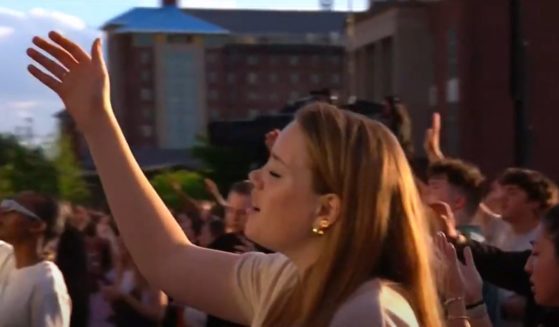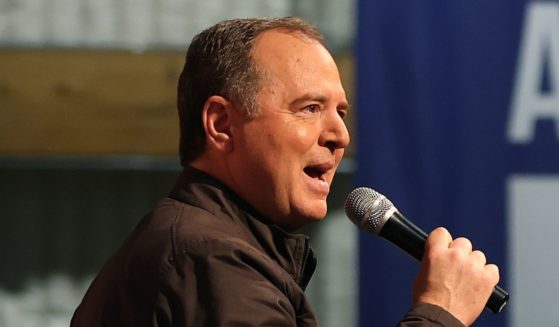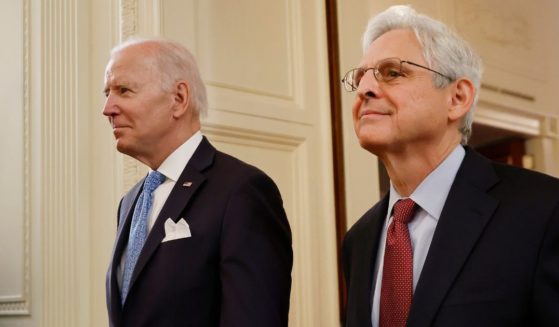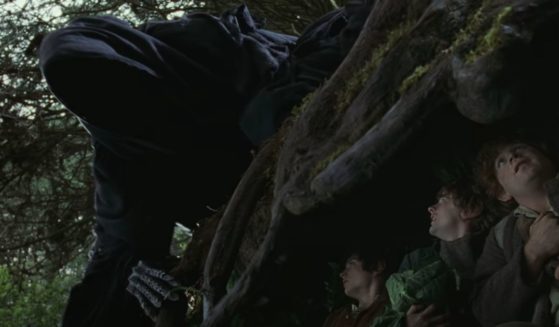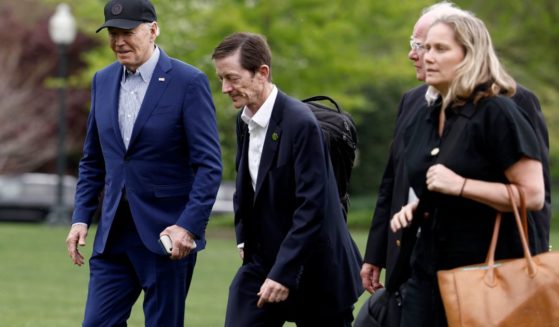China Sends Brazen Military Threat as American Official Visits Chinese-Claimed Country
China’s military sent 18 planes including fighter jets over the Taiwan Strait in an unusually aggressive show of force on Friday as a U.S. envoy held a day of closed-door meetings on the self-governing island claimed by China.
Under Secretary of State Keith Krach, who handles economic growth, energy and the environment, held talks with Taiwan’s minister of economic affairs and vice premier. He also met with business leaders over lunch and was to dine with President Tsai Ing-wen later Friday.
In response to Krach’s visit, the Chinese People’s Liberation Army held combat exercises near the Taiwan Strait in at least the second round of war games this month aimed at intimidating supporters of the island’s independence.
Taiwan’s defense ministry said two bombers and 16 fighter jets from China crossed into Taiwan’s air defense identification zone. It said it scrambled jets in response and monitored the movements of the Chinese planes.
Chinese defense ministry spokesperson Ren Guoqiang called the drills a “legitimate and necessary action taken in response to the current situation across the Taiwan Straits to safeguard national sovereignty and territorial integrity.”
“Recently, the U.S. and [Taiwan’s ruling] Democratic Progressive Party authorities have stepped up their collusion and frequently stir up troubles,” Ren told reporters on Friday morning.
“Whether it is using Taiwan to contain China or relying on foreign powers to threaten others, it is wishful thinking and is destined to be a dead end.”
In a brief message on its blog, the Eastern Theater Command said the exercises involved naval and air force units in the Taiwan Strait aimed at gauging their ability to carry out joint operations.
China’s Ministry of Foreign Affairs also defended the move. Ministry spokesman Wang Wenbin said China has the “firm will, full confidence and sufficient ability to thwart all external interference and separatist actions by Taiwan independence forces.”
Beijing views Taiwan as part of its own territory and strongly opposes any type of formal interaction between other countries and the autonomous island democracy.
Krach’s trip follows a visit in August by U.S. Health Secretary Alex Azar, the highest-level U.S. Cabinet official to visit Taiwan since 1979.
It is one in a series of moves by the Trump administration to strengthen relations with Taiwan, including increased arms sales and support for the island’s participation in international forums.
Before Krach’s arrival, the U.S. ambassador to the United Nations, Kelly Craft, had lunch on Wednesday with Taiwan’s top official in New York in a meeting she called historic.
On Saturday, the last day of his visit, Krach will also attend a memorial service for former President Lee Teng-hui, who led the island’s transition to democracy and died at age 97 in July.
Analysts say the Chinese military response is a clear threat to the U.S., since China took similar actions when Azar visited in August.
“I think the Chinese are using this tool to try and stop the kind of diplomatic relationship between the U.S. and Taiwan. It’s very clear from them,” according to Alfred Wu, associate professor at the Lee Kuan Yew School of Public Policy at the National University of Singapore.
The frequency of Chinese exercises near Taiwan recalls the last major crisis between them in 1995-96, when China fired missiles near the island and held war games in a bid to intimidate voters in Taiwan’s first direct presidential election. Those actions were largely seen to have backfired.
Taiwan said Chinese warplanes entered its airspace over two days last week during large-scale war games that it called a “serious provocation to Taiwan and a grave threat to regional peace and stability.”
Such actions by the Chinese military threaten the entire region, it said, calling on the international community to respond.
China has increasingly relied on military threats and diplomatic isolation to pressure Taiwan.
That follows the apparent failure of its efforts to win over the island’s 23 million people to the prospect of political unification under the “one country, two systems” framework used in Hong Kong, with a large majority of Taiwanese favoring maintaining the status quo of de facto independence.
Despite of the frequency of the exercises, analysts said it does not mean imminent war.
“The signal from Beijing is very, very clear, but does that mean a prelude to war? No, far from it,” Chong-Pin Lin, a former deputy defense minister in Taiwan, said.
China cut contacts with Taiwan’s government following Tsai’s 2016 election. She was reelected by a large margin this year and her Democratic Progressive Party maintained its majority in the legislature.
The Western Journal has reviewed this Associated Press story and may have altered it prior to publication to ensure that it meets our editorial standards.
Truth and Accuracy
We are committed to truth and accuracy in all of our journalism. Read our editorial standards.


